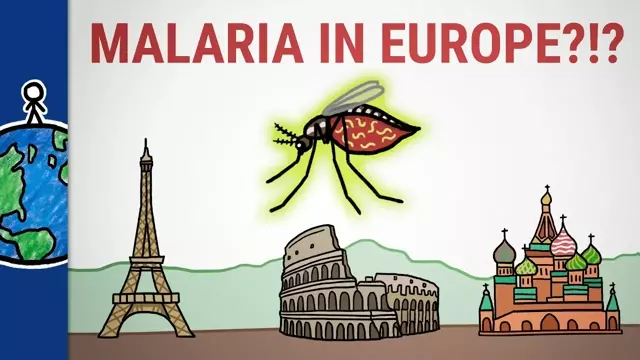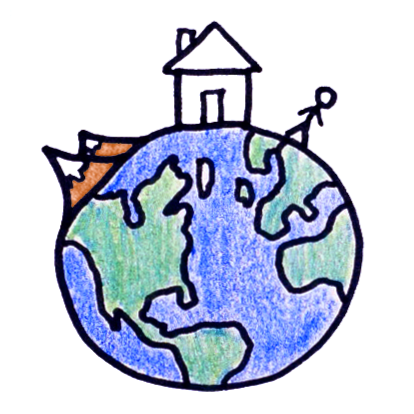2018-09-12
[public] 276K views, 8.23K likes, dislikes audio only
Malaria is a global disease that we've beaten back around the world, including in some tropical places, but we’ve had the hardest time in Africa.
Watch @HotMessPBS!
LEARN MORE
**************
To learn more about this topic, start your googling with these keywords:
- Anthropophily: an organism’s propensity to feed on humans rather than other animals
- Biogeography: the study of the distribution of species and organisms throughout space and time
- Malaria Control: the reduction of malaria’s impacts to a locally acceptable level as a result of deliberate efforts. Continued intervention is required to sustain control.
- Malaria Elimination: the interruption of local transmission (i.e. reducing the rate of malaria cases to zero) of a specified malaria parasite in a defined geographic area. Continued intervention is needed to prevent reestablishment of transmission.
- Malaria Eradication: the permanent reduction to zero of the worldwide incidence of infection caused by human malaria parasites, after which intervention measures are no longer needed (e.g. as with smallpox, the only disease we've eradicated)
If you liked this week’s video, you might also like:
How the US CDC grew out of the "Office of Malaria Control in War Areas": https://www.cdc.gov/malaria/about/history/history_cdc.html
Amazing animation of how different parts of the world become more or less suitable for malaria over the seasons: https://www.dropbox.com/s/acqlg5l8pnxjl2x/Gething%202011%20Vivax%20suitability%2013071_2011_324_MOESM4_ESM.MPEG?dl=0
Animated map of malaria's shrinking distribution: https://www.economist.com/graphic-detail/2015/10/14/the-shrinking-malaria-map
CREDITS
*********
Script Writer: Alex Reich
Script Editor: Kate Yoshida
Video Illustrator: Qingyang Chen
Video Director: Alex Reich & Emily Elert
Video Narrator: Emily Elert
With Contributions From: Henry Reich, Ever Salazar, Peter Reich, David Goldenberg
Music by: Nathaniel Schroeder
MinuteEarth is produced by Neptune Studios LLC
SUPPORT MINUTEEARTH
**************************
If you like what we do, you can help us!:
- Become our patron: https://patreon.com/MinuteEarth
- Our merch: http://dftba.com/minuteearth
- Our book: https://minuteearth.com/books
- Share this video with your friends and family
- Leave us a comment (we read them!)
OUR LINKS
************
Youtube | https://youtube.com/MinuteEarth
TikTok | https://tiktok.com/@minuteearth
Twitter | https://twitter.com/MinuteEarth
Instagram | https://instagram.com/minute_earth
Facebook | https://facebook.com/Minuteearth
Website | https://minuteearth.com
Apple Podcasts| https://podcasts.apple.com/us/podcast/minuteearth/id649211176
REFERENCES
**************
Carter, R., & Mendis, K. N. 2002. Evolutionary and historical aspects of the burden of malaria. Clinical microbiology reviews, 15(4), 564-594. https://cmr.asm.org/content/cmr/15/4/564.full.pdf
Gething, P. W., et al. 2011. Modelling the global constraints of temperature on transmission of Plasmodium falciparum and P. vivax. Parasites & vectors, 4(1), 92. https://doi.org/10.1186/1756-3305-4-92
Hay, S. I., et al. 2004. The global distribution and population at risk of malaria: past, present, and future. The Lancet infectious diseases, 4(6), 327-336. https://dx.doi.org/10.1016%2FS1473-3099(04)01043-6
Lardeux, F. et al. 2007. Host choice and human blood index of Anopheles pseudopunctipennis in a village of the Andean valleys of Bolivia. Malaria journal, 6(1), 8. https://doi.org/10.1186/1475-2875-6-8
United States CDC. 2018. Malaria: Biology. https://www.cdc.gov/malaria/about/biology/index.html
World Health Organization. 2016. World malaria report 2015. http://www.who.int/malaria/publications/world-malaria-report-2015/report/en/
World Health Organization. 2016. Eliminating malaria. Geneva. http://apps.who.int/iris/bitstream/handle/10665/205565/WHO_HTM_GMP_2016.3_eng.pdf
/youtube/video/SmQ5-iM6YsA?t=55.5
/youtube/channel/UCeiYXex_fwgYDonaTcSIk6w
youtube.com/channel/UCsaEBhRsI6tmmz12fkSEYdw
youtube.com/watch?v=A4kX9xKGeEw

